#the broken earth
Text
PLEASE for the love of the universe read anti-colonial science fiction and fantasy written from marginalized perspectives. Y’all (you know who you are) are killing me. To see people praise books about empire written exclusively by white women and then turn around and say you don’t know who Octavia Butler is or that you haven’t read any NK Jemisin just kills me! I’m not saying you HAVE to enjoy specific books but there is such an obvious pattern here
Some of y’all love marginalized stories but you don’t give a fuck about marginalized creators and characters, and it shows. Like damn
#science fiction#fantasy#xenogenesis#earthseed#the broken earth#frankly I think many of the critiques of my own work are valid#but when I see the same criticisms applied to authors who fundamentally changed the genre#I’m like#hold up
15K notes
·
View notes
Text

vote YES if you have finished the entire book.
vote NO if you have not finished the entire book.
(faq · submit a book)
43 notes
·
View notes
Text
Things in my ask box
Hi folks. Every so often I get questions from folks that are good, but which I worry might catch them some flak from my other readers or whoever. Sometimes I answer those people privately, but in general I prefer not to do private replies to asks; for one thing, other people might want to know the answer, and for another, I've had a few awkward situations result from doing so (basically just people going parasocial on me), and I think that sort of thing is less likely when it's clear I'm talking to everyone. So, I'm going to handle these awkward asks by just treating them as Q&A questions -- without showing that person's username and where necessary, altering the question in order to protect their identity. I've got a few of these stored up, but just gonna do two this time for length and time reasons. I'll get to the rest later.
Are you a proshipper?
Yep. Feel free to alter your decision re following me on social media now that you've read that answer. But I believe in "don't like, don't read," and that fiction doesn't indicate what an author really believes (because it's fiction), and that there's no subject matter too immoral to explore on its face (everything depends on the execution), so... yep.
2. I love the Broken Earth trilogy, but I have to say, the middle book really didn't go anywhere, literally. Essun stayed in Castrima and Nassun moved around a little more but mostly stayed in the same place too. It killed a lot of the story momentum for me. Why did you decide to do this?
[spoilers for Broken Earth books, though I'll try to minimize them and will put a "read more" before I get there]
Because I felt like it. I'm not saying that defensively, I'm just noting that the answer to pretty much any question you might ask a writer about why they do a particular thing is... because they felt like it. Period full stop. Sorry that wasn't what you wanted to read! It was, however, the story I wanted to tell.
To elaborate... different people have different expectations of trilogies. That's because there are a lot of different ways to handle them, narratively speaking. Sometimes a trilogy is really a group of shared-universe stories taking place in the same world but not necessarily featuring the same characters, and with unrelated plots. Some are telling a single story, but through different POVs and smaller plot arcs that each have their own terminuses; that's what I did with the Inheritance Trilogy, for example. And sometimes, as I did with the Broken Earth books, the author is just telling one big story broken up into three parts. (There are more ways to do a trilogy than this, but let's keep this brief, lol.)
Now, there are a lot of ways to handle this kind of story, but a pattern that most of us are used to is:
Book One: Introduction to the world and important characters and the apparent stakes;
Book Two: Deep dive into the important characters and world, thus giving the audience a reason to care more; and
Book Three: Now we really know the stakes and shit just got real! Now we care what happens to the characters when EVERYTHING! BLOWS!! UP!!!
(I am feeling very silly today, sorry.)
We're familiar with this pattern because we see it all the time, especially in American media. It's a variation on the three-act structure seen in plays and other narratives. It's the basis of our most popular longform stories! The original Star Wars trilogy did it. The Mass Effect trilogy did it. (Andromeda was a separate story, probably meant to be the start of a new trilogy.) The Lord of the Rings did it, prequeled by the Hobbit and mirrored by the Silmarillion. I mentioned those examples because the middle stories of each all exhibit the same traits: a drastic change of pace or location for the protagonists, putting the protagonists through personal character growth arcs, and poking at minutia or seemingly unimportant aspects of the world (which usually end up pretty important before all is said and done).
Now let's answer your question. Spoiler warning again:
In the Broken Earth, we got introduced to the Stillness and Essun in Book One. There was a lot of physical movement in that book as Essun was on the road for most of it (as were other characters), but the plot itself was relatively simple: A bad thing happened to this person and she needs to go somewhere and find someone, to fix it! And then pretty much the entirety of that book's narrative was "Who is this person, why does the bad thing matter, and how close does she get to finding her missing person?" Then in Book Two, we learned a little more about this person, a lot more about her impact on other characters including the one she's been trying to find, and we spent a while learning about orogeny, the Obelisk Gate, and what the stone eaters have been up to. I cheated a little on this; there wasn't room to do a deep dive into the backstory of one pivotal character, but I did finally reveal that this character is the "secret" narrator of the whole trilogy, and made his agenda clearer. I ended up putting his "deep dive" into Book Three instead, where it was particularly relevant to the STUFF! BLOWING!! UP!!!
The reason a lot of readers complain about "Middle Book Syndrome," I suspect, is because of this pattern -- and because of their expectations. A lot of people come at a middle book expecting Book One Redux. That's what you often get in shared-universe trilogies -- Book One over and over again, roughly the same balance of characters vs events each time, in a familiar setting. We're conditioned to want that, I think, from other episodic works. Comic books, for example: When I was working on FAR SECTOR, my editor at the time explained that I needed to try and have a fight or action scene in most of the issues. I hate fight scenes -- sorry! -- so that was hard for me. TV shows -- the ones that aren't themselves telling a single big story over time -- do this, too. I think of it as the "If You Liked X, Then Try... X!" structure. Absolutely nothing wrong with this structure, by the way. I'm just describing it, not throwing shade. I'm a big fan of stories like this myself.
But even for audience members who were expecting the Three-Act Trilogy structure instead, that middle book is going to be jarring. It's supposed to be jarring. The refugees have survived the first book but stopped to dress their wounds and regroup; the adventurers on a quest have reached an impasse and need to find allies and grind to build up their strength; the stalwart hero has just suffered a massive setback and needs to overcome their own doubt or character flaws. A good way to handle this is to take the characters out of their familiar space, and put them somewhere new, or give them a very different kind of challenge. [Mass Effect and LOTR spoilers] Oh, no, Shepard died and their team broke up! What now? Oh, no, Frodo and Sam are on their own trying to get to Mordor! They're just these little guys! How are they gonna make it? If you got overly attached to Shepard team from ME1, or the Fellowship, you're in for a rough ride in these followups. But the jarring nature of this kind of followup is absolutely necessary. An author who does this knows they're going to lose some readers, when they do it. Clearly I almost lost you! But I stand by that choice, because I think it made the whole trilogy better.
Sidebar: I'm old enough to remember the controversy back when "The Empire Strikes Back" came out. Critics haaaaaated that movie! It was too dark, they said; wasted too much time on unimportant stuff. Too much character work, not enough space battles. Then it became clear that audiences loved the second movie even more than the first, precisely because it was darker and because Luke spent so much time futzing around with Yoda and because there were all these girl cooties romantic moments between Leia and Han. A lot of the critics backpedaled at that point, with some of them even acknowledged that they'd been hoping for Star Wars All Over Again and not What Happens Next That Is Not Star Wars. They'd simply brought the wrong expectations to the story.
This is not to say that you have the wrong expectations, Ask-er. Maybe you were expecting exactly that structure, and you just don't like the way I handled it, or you think I did a poor job. Every reader's experience of a story is different, and not everybody's gonna want to pick up everything I throw down. But you asked why did everyone stay in one place, and this is why: to do a deep dive into the character of the Stillness itself. In a story where the setting was as much a "character" as the people in it, I felt it necessary to show enough of that setting for readers to care about it. Would you care, for example, if the town of Brevard (Damaya and Schaffa spend one night there in Book One) got blown off the map in Book Three? Probably not, because I spent no time on any of its citizens or issues. A lot of people cared about Castrima, though, by the end of Book Two.
Whoo, this got long! Hope it answers your question, Ask-er.
236 notes
·
View notes
Text
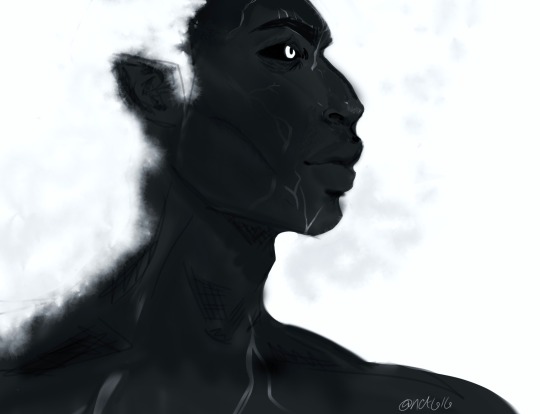
hoahoahoahoahoahoahoahoa
#nk jemisin#nkjemisin#the broken earth#hoa#broken earth trilogy#fanart#nk jemisin fanart#I keep forgetting to post shit on here sorry to all ≈4.3 of you who may care#the fifth season#the obelisk gate#the stone sky
65 notes
·
View notes
Text

I am here once again to ask everyone to read The Broken Earth trilogy ❤️
77 notes
·
View notes
Text
#lord of the rings#broken earth trilogy#the broken earth#nk jemisin#n.k. jemisin#jrr tolkien#lotr#fantasy book tournament#polls#round 4
124 notes
·
View notes
Photo
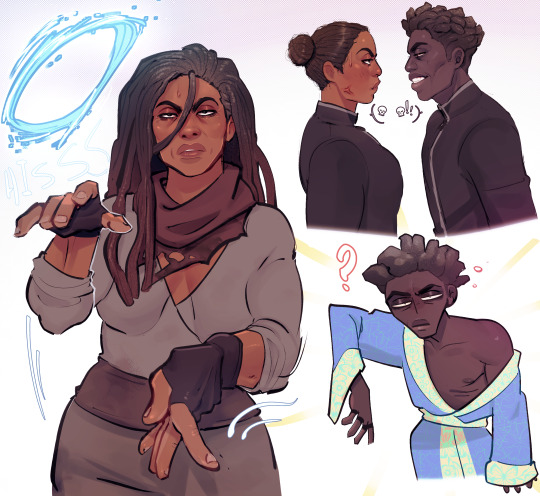
im rereading the fifth season w gf and recalling my love for these characters. rly wanted to lean into alabaster and essun’s age... i love themb.
#the fifth season#the broken earth#the broken earth trilogy#essun#alabaster ten ring#syenite#syenite x alabaster#fanart#nk jemisin
802 notes
·
View notes
Text
I'm really glad I waited to read The Fifth Season by NK Jemisin because it really is so worth the time and energy this book takes. it is so beautiful and carefully crafted and I am so excited to read the rest of the series. I was worried it wouldn't hit me the way it did everyone else but I am so glad I was wrong. It is also worth going in blind (except maybe some trigger warnings) but such a fully captivating and wise novel. if you haven't read it yet, I highly recommend picking it up!
#nk jemisin#the fifth season#the broken earth#mini review#i havent picked up two yet because grad school#but i will when the semester is over
31 notes
·
View notes
Text
thinking about alabaster and syenite again.... i love you. i hate you. you are my only friend. i miss you. i never want to see you again. you are an inextricable part of my happiest memories. you have done the worst thing to me that could ever be done to another person. i understand why you did it. i'll never forgive you
#the fifth season#they're so fucking sad man#the ultimate doomed by the narrative#i need to read those books again its been too long#the broken earth
19 notes
·
View notes
Text
I heard y'all liked sad little gay guys who are doomed by the narrative, so let me let you in on The Doomed Gay of All Time: Alabaster from The Broken Earth Trilogy by N. K. Jemisin.
Don't believe me? Go read it and report back to this post.
28 notes
·
View notes
Note
do you have any book recommendations? anything like the locked tomb or just fantasy/science fiction in general? :)
Hi anon I LOVE GIVING BOOK RECS!
Unfortunately I haven’t found anything quite like TLT, but when you break it into main themes some other series come close. So, if you liked The Locked Tomb for…
Morally ambiguous lesbians and oppressive empires? Try The Traitor Baru Cormorant by Seth Dickinson. I love Baru as a character and I love and what the book does with themes of cultural assimilation and how the road to a righteous goal is paved with moral compromises until you’re not sure you’re still on the right path. Content warning for institutional homophobia, which affects the plot and the main character. It’s never gratuitous, but it’s pretty much the opposite of TLT under that point of view so heads up.
Unique worldbuilding, queer characters, distinctive sense of place in a land that was once Earth? Try The Fifth Season by NK Jemisin. This isn’t to everybody’s tastes (usually people love it or hate it) but it does some VERY cool things with scifi and deservedly won a Hugo.
Intricate worldbuilding, necromancy, gothic vibes? Try The Bone Orchard by Sara Mueller. This definitely hits the same “confused and confusing female main character who doesn’t know her own mind” vibes as HtN, which can be good or bad depending on your tastes, but the necromancy bits are fantastic.
Oppressive planetary empires and queer characters? Try A Memory Called Empire by Arkady Martine. This too is about cultural assimilation and has a main murder mystery plot. Space opera about a young diplomat in a precarious position who is sort of sharing her mind space with someone else. Bonus: fun scifi worldbuilding based on some lesser-known historical empires.
Other SFF I read or reread in 2022
City of Stairs by Robert Jackson Bennett for worldbuilding, shady empires, female MC, urban fantasy vibes with a strong sense of place and a murder mystery thrown in for flavour.
Deeplight by Frances Hardinge. YA fantasy with horror vibes that I very much enjoyed as an adult not usually keen on YA. There are scary eldritch gods, toxic relationships with a hopeful ending, excellent fantasy worldbuilding, a really solid sense of civilization (especially the Deaf culture of the divers that is really interwoven in the setting). Sea monsters! Secrets! Street urchins! This is one of my all-time favourites.
The Scholomance series by Naomi Novik, starting with A Deadly Education; the third book came out two weeks after Nona and it gave me emotional whiplash, because (spoiler!) the angry goth girl gets to be happy in this one! YA, very vivid very fun worldbuilding, spunky teenage heroine with a cynical disposition and death powers.
Obligatory rec for Jonathan Strange & Mr Norrell just because it’s one of those books that make me feel like I’m a richer person for having read them. It’s an impressive alternate history fantasy, the writing is masterful, the fae villain is unsettling and inhumanly evil, the mundane villains (pettiness, spite, centuries-old institutions) provide excellent dramatic irony. Everyone is insufferable in a petty way that’s also endlessly entertaining, and the two titular characters are absolutely obsessed with each other. The prose is a pastiche and tremendously well written. My only nitpick is that there are way too many men. I get why, given the setting the premise and the characters, and I loved the book, but since this rec originated with an ask about TLT I feel like I have to clarify that the gender ratio is pretty much the polar opposite.
My Heart Is a Chainsaw by Stephen Graham Jones if you like spunky teenage girl protagonists, poetically described gore, critique of colonialism and indigenous displacement. This is a horror thriller not a sff, sent in the contemporary US, and it’s basically a love letter to the horror movie genre + Native American folk legends. Reccing it anyway because YMMV but to to me it really hit some of the spots that HtN does. (Content warning for off-screen CSA)
The Gone World by Tom Sweterlitsch. Speculative fiction thriller, lots of jumping between alternate timelines and wondering what exactly is going on. It’s not flawless but it’s unabashedly weird in a very fun, very unique way that I really appreciated.
Under the Pendulum Sun by Jeannette Ng. Unique worldbuilding, distinct narrative voices, gothic vibes, weird religious imagery. Fantasy historical fiction about cruel inhuman fae, the worldbuilding is brilliant and very vivid (and what an aesthetic it is!), the story is fucked up in a delicious way, and the prose is a delightful Brontë pastiche. Content warnings for consensual sibling incest and Christian missionaries on a mission of “civilization” through faith (it’s not portrayed in a positive way but the colonialism is definitely there).
[I only flagged content warnings that aren't canon-typical for TLT, but definitely more apply. If you need clarification on a specific book HMU]
#reading recs#reading list#the traitor baru cormorant#teixcalaan#the broken earth#the scholomance#ask#anonymous#@anon if you've read any of these and have Opinions whether good or bad lmk#so i can narrow it down to tailor made recs AND have an excuse to do more BookTalk#baru cormorant
290 notes
·
View notes
Text
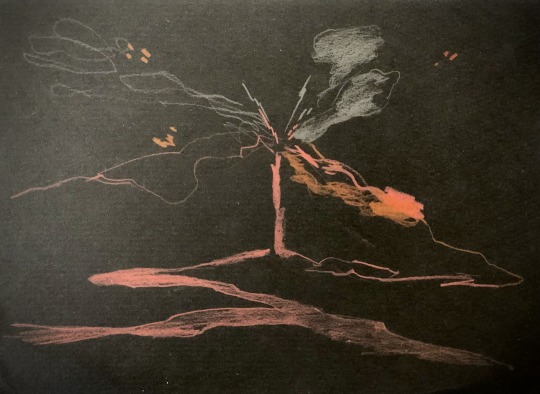

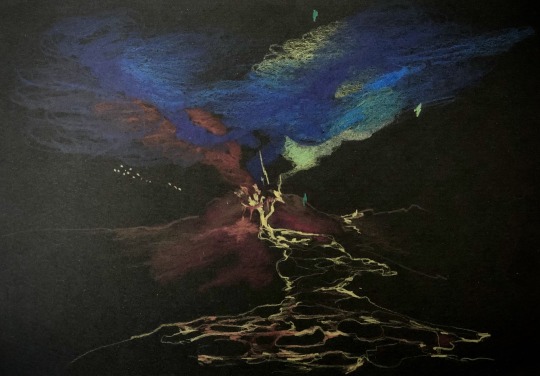



#the fifth season#nk jemisin#science fiction#fantasy#scifi#broken earth trilogy#hugo awards#syenite#innon#the broken earth#the stone sky#the obelisk gate#damaya#essun#nassun#fanfic illustration#luxmeteora#luxnieve
238 notes
·
View notes
Text
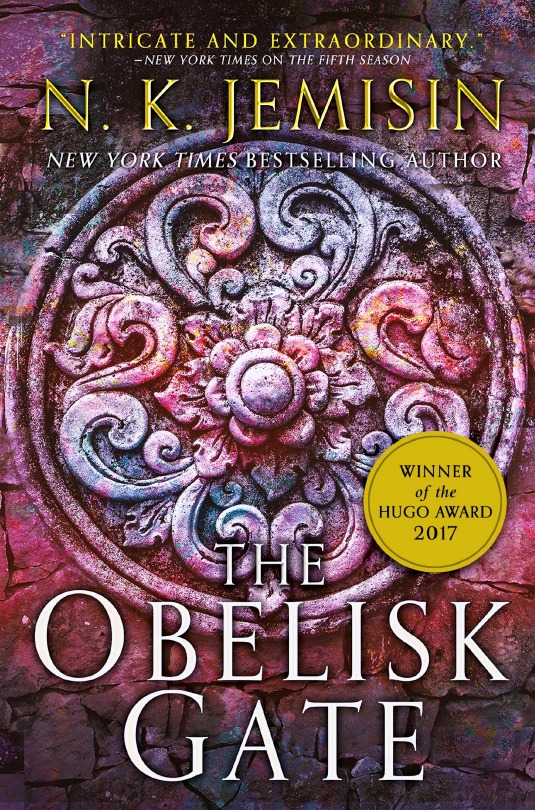
vote yes if you have finished the entire book.
vote no if you have not finished the entire book.
(faq · submit a book)
33 notes
·
View notes
Text

The Fifth Season by N. K. Jemisin
46 notes
·
View notes
Text
Miscellaneous Literature Masterpost
Chronicles of Narnia - C.S. Lewis
The Start of a Long Summer - Azula steps through a wardrobe to find a kidnapping faun and a wintry kingdom ripe for regime change. (Chronicles of Narnia/Avatar: The Last Airbender crossover) Azula, Tumnus.
Earth’s Children - Jean M. Auel
Only a Motion Away - The mother and child reunion is only a motion away. (Druc, Nezzie)
Harry Potter - J.K. Rowling
An Odd Place For It - Southern California is an odd place to find a horcrux but there are stranger things in the Sunnydale High School library. (Harry Potter/Buffy the Vampire Slayer crossover) Harry, Hermione, Ron, Scoopy Gang
Have to Start Somewhere (The Words to Rebuild Remix) - This diary belongs to Ginevra Molly Weasley and no one else. (Ginny)
Hunger Games - Suzanne Collins
Panem and Circuses: A look at the woman who made the Games - As Panem prepares to celebrate the Third Quarter Quell, Games Gab takes a look back at the brilliant innovator who almost single-handedly transformed the Hunger Games from a rather tedious affair mandated by the Treaty of Treason into the entertainment juggernaut they are today. (written before A Ballad of Songbirds & Snakes)
Jonathan Strange and Mr. Norrell - Susanna Clarke
Requiescat in pace - In which Jonathan Strange discovers that returning the dead to their natural state is more difficult than he would imagine. (Jonathan Strange)
Oxford Time Travel Universe - Connie Willis
Primary Sources - In the dark years when the net won’t open, Colin has a lot of growing up to do. (Colin Templer, Kivrin Engle)
Not the Last Goodbye - Polly isn't ready to let Eileen go without saying one last goodbye. (Polly Churchill, Eileen Reilly, Colin Templer)
Temeraire - Naomi Novik
Epistolary - Dear Lady Allendale….yours, etc., Emily Roland
The Broken Earth Series - N.K. Jemisin
Seismic Shift - Schaffa tells himself he will stop if Eitz says no. This one will be allowed to say no. The boy says nothing at all. (Schaffa, Eitz) Warning: Child Sexual Abuse
Tortall - Tamora Pierce
Hole in the Sea - The whales say there is a hole in the ocean and a monster stirring in the deep. (Tortall/Pacific Rim crossover) Daine, Kaiju.
Young Wizards - Diane Duane
So You Want to Be a (Space) Wizard - Finn finds a mysterious book, takes an Oath, and starts one hell of an Ordeal. (Young Wizards/Star Wars Sequels fusion) Finn, Rey, Poe Dameron
#my fic#fic masterpost#fic masterlist#chronicles of narnia#earth's children#hunger games#jonathan strange and mr norrell#oxford time travel universe#the broken earth#tortall#young wizards
22 notes
·
View notes
Text
Round 2 Part 3 Poll 2
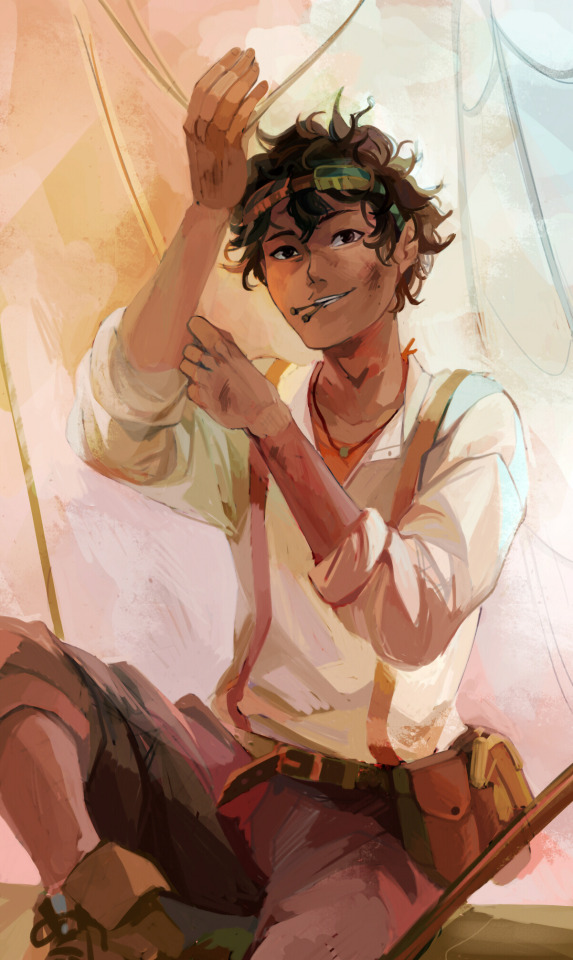
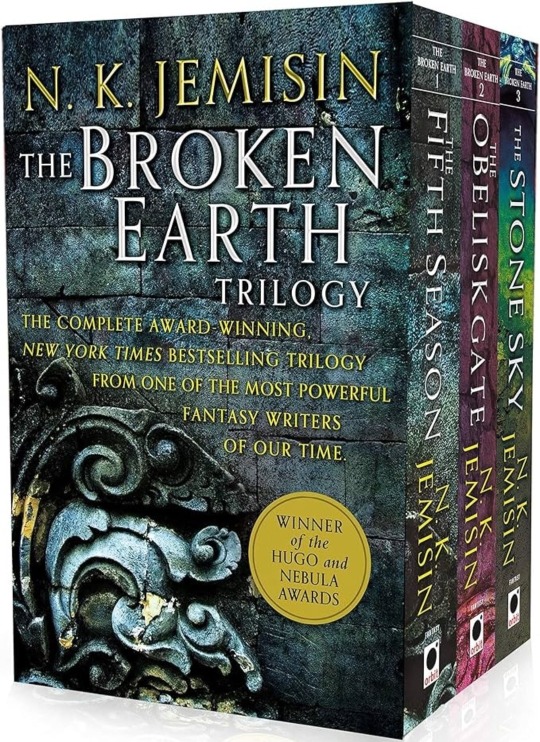
Propaganda
Ok so Leo’s basically a mechanic who built the Argo II (he also has a flying mechanical dragon that he fixed named Festus who was then destroyed for a while but that’s not important here) and is pretty much the only one who can fly it (there’s one other person, but he’s still the usual pilot). Also, the ship eventually turns back into the sentient flying dragon, which is pretty neat.
Innon’s got a fun polycule going on
#battle of the captains#tournament polls#round 2#leo hoo#hoo leo#leo valdez#heroes of olympus#hoo pjo#pjo fandom#pjo hoo toa#riordanverse#hoo fandom#bookblr#rick riordan#the broken earth#n.k. jemisin#nk jemisin#n k jemisin#the fifth season#innon#fifth season
20 notes
·
View notes